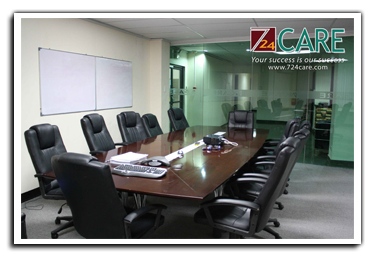 (The Philippine Government, its Economy and the BPO Industry)
(The Philippine Government, its Economy and the BPO Industry)
The Philippines has the 4th largest economy in South East Asia. It has a mixed economic system and its industry's important sectors include food processing, textiles and garments, electronics parts, and automobile parts. Agriculture and mining also have great potentials in the Philippines. The lands mostly are rich in chromite, nickel, and copper, and the rich soil produces fruits, vegetables, root crops, and rice for the farmers. Most industries are centered in the urban areas like Metro Manila and Cebu.
Unfortunately, since the end of World War II, the economic situation of the Philippines has significant ups and downs. This country was at one time one of the richest countries in South East Asia before the period of chronic weak performance of several corrupt leaders that made the economy unstable.
After the protracted dictatorship of the corrupt leader, Ferdinand Marcos, the Philippines was able to gradually uplift its economy by the restoration of democracy from the succeeding administrations of the late Corazon Aquino and Fidel V. Ramos. At some point in time the economy deteriorated again due to political instability, major problem regarding the nation's electricity, multi-billion debts left by the Marcos regime, and a wave of major natural disasters which further damped economic activity.
The succeeding Joseph Estrada administration tried to continue the reform that was started by the previous administrations, yet, a major bank failure and political disturbances, following his impeachment and subsequent departure from office led to a slower growth of the economy. This made the Filipino people leave the country and seek greener pasture in foreign lands. The Philippines started producing overseas Filipino workers (OFW), where domestic helpers and personal service workers are the majority of the exported services and were filled mostly by women. The OFWs have contributed a lot to the economy through remittances, buying properties, and creating businesses.
It was under the presidency of Gloria Macapagal-Arroyo that pushed towards faster economic growth. Her stance towards economic improvement has remarkably re-emerged and restored the economy. Major infrastructures arose in the metropolitan areas of Luzon, while Metro Cebu also became an attraction for foreign and local investors. It was in her time that the Philippines ventured into a new economic boon that encompasses the Business Process Outsourcing or BPO industry. It was then that the Philippines became the second largest call center industry, next to India, according to the June 2008 study that was released by Oracle Corp.
The emergence of BPO industries in the Arroyo administration has a humungous effect in the country's unemployment rate, helping thousands of young individuals feed their families and provide them a comfortable lifestyle. Majority of the top ten BPO firms of the United States, operate in the Philippines and invested billions of dollars because of the quality of service that the Filipinos provide.
However, the country is still facing several challenging problems such as high oil prices and political instability and mudslinging. Recently the country suffered the destructive wake of two typhoons that wreaked serious havoc on the agricultural sector. It was also during Arroyo's administration where large-scale corruption activities were discovered and was divulged by some of her cronies who can not stand anymore her greed.
Money sent by OFW back to the country represents a huge chunk in the country's economy today. This makes the country the fourth largest recipient of foreign remittances behind India, China, and Mexico. The rising call center industries also provided a positive impact to the economy. Indeed, the call center industry will play a significant role as the country continues to develop its full potential and forges towards the millennium.
 (The Philippine Government, its Economy and the BPO Industry)
(The Philippine Government, its Economy and the BPO Industry)




 888-724-8889
888-724-8889 0800-007-3563
0800-007-3563








